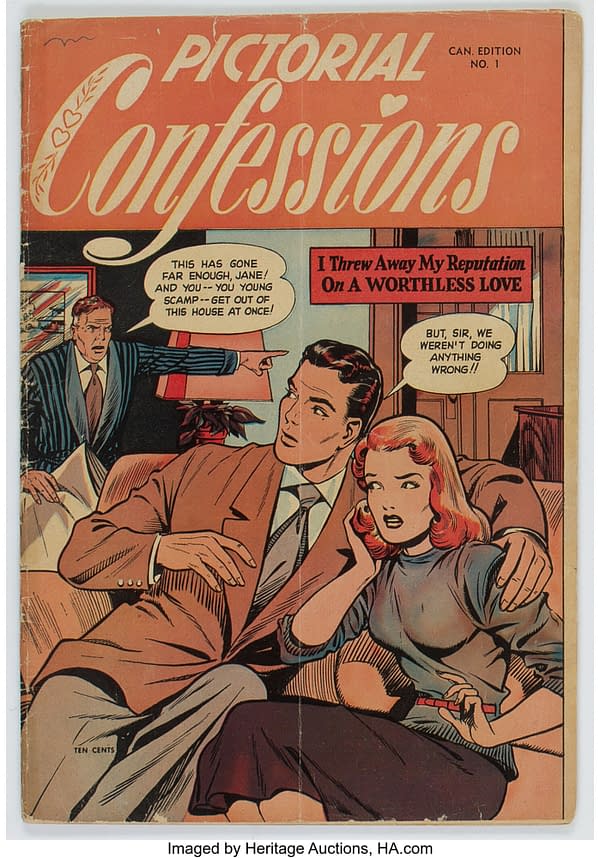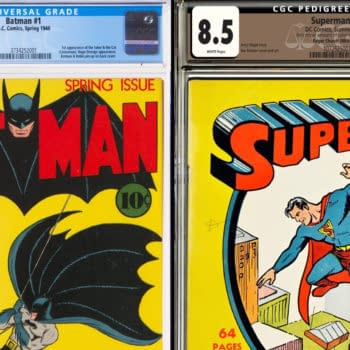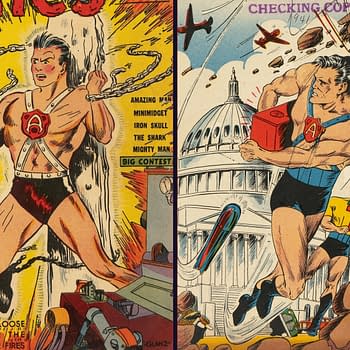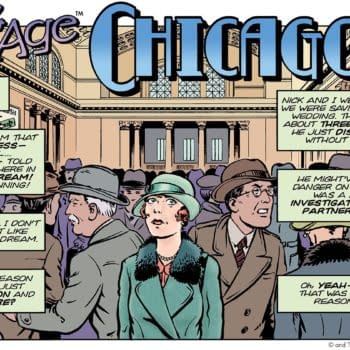Posted in: Comics, Heritage Sponsored, Vintage Paper | Tagged: Fawcett Publications, Matt Baker, St. John Publications
Fawcett v St. John Over Matt Baker's Pictorial Confessions, at Auction
In 1949, Fawcett launched a lawsuit that ultimately forced St. John to rename its titles Hollywood Confessions and Pictorial Confessions.
The modern romance magazine had been a staple of American newsstands for decades by the time comic books entered the arena with Joe Simon and Jack Kirby's Young Romance in 1947. The related and overlapping notion of the "confession magazine" had likewise been around for a while by the time that comics entered the field during the romance boom with titles such as St. John's Hollywood Confessions and Pictorial Confessions.

The confession magazine as we know it today (or at least, as we knew it for nearly a century) was popularized by Bernarr Macfadden's True Story beginning in 1919. Fawcett Publications jumped into the field in 1922 with True Confessions, which through various ownership and format changes, lasted until around 2017. True Confessions was one of the publisher's great success stories, encouraging Fawcett to launch other romance-related magazines. While Fawcett was not the first to enter the comic book romance genre, they became one of the leaders of the field with Sweethearts and Life Story. In 1949, Time Magazine trumpeted Fawcett's success in entering the comic book romance field while noting that Macfadden's financial returns suffered because they had failed to do the same.
Fawcett had become protective of what it viewed as its True Confessions turf by this time, and they were occasionally legally aggressive over rivals attempting to enter this field while using the word "confessions" in their titles. As we saw recently with the American Comics Group v Ace Magazines battle over the usage of "unknown," while courts generally agreed that no publisher could claim proprietary use of a common English word, whether that specific use in the context of the publication could create confusion among consumers (and thus lead to unfair competition) can be another matter entirely. For example, Fawcett succeeded in stopping a rival from registering the trademark Crime Confessions in 1943, but failed to stop the usage of Bronze Confessions on a magazine in 1949.
That same year, Fawcett filed suit against St. John for infringing on its trademark for True Confessions with the comic book titles Pictorial Confessions and Hollywood Confessions. While there's no sign that this suit went to trial, it would appear that St. John settled, with Hollywood Confessions lasting for two issues and Pictorial Confessions lasting for three. Both titles were then renamed and resumed.
It's unclear whether St. John was singled out for specific reasons or if other publishers dissuaded Fawcett from moving forward with lawsuits. In 1949 alone, Quality Comics launched Love Confessions, and Hillman started Romantic Confessions, both of which became relatively long-running titles. Given the details of similar situations, such as the ACG v Ace matter, it's possible that the Pictorial Confessions logo's large focus on "confessions" attracted Fawcett's attention here.
Nevertheless, with a title change to Pictorial Romances, the series eventually became a success for St. John during this era, with a large number of Matt Baker covers and stories throughout the run. The short Pictorial Confessions run has become somewhat overlooked by comparison. An interesting historical moment in the romance comics of the era, the debut issue featured the classic one-two punch of a Matt Baker cover paired with a Baker lead story that issue. There's a Pictorial Confessions #1 Canadian Edition (Publication Services, 1949) Condition: VG up for auction in the 2023 August 17 The Matt Baker Comics & Comic Art Showcase Auction #40233.

















